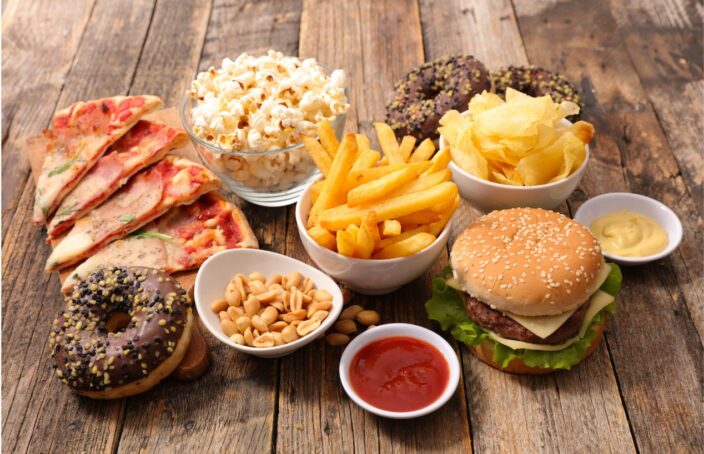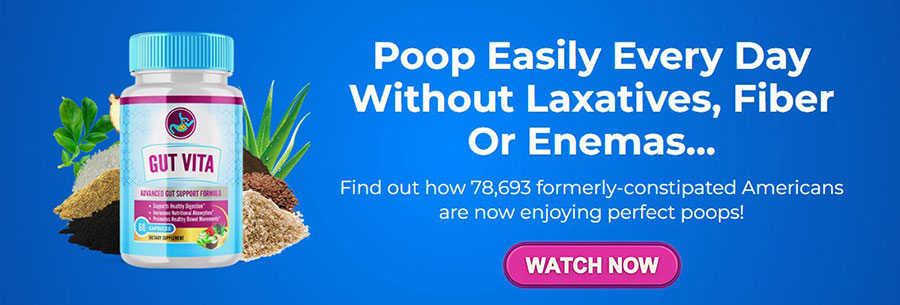10 Worst Foods For Gut Health (Plus Their Healthy Alternatives)
I still remember sitting in my kitchen, feeling defeated. My gut health was at an all-time low—bloating, cramps, and a general sense of unease that followed me everywhere. My mornings started sluggish, and my evenings ended in discomfort. Desperate for a change, I started tracking what I ate, only to realize that some of my favorite foods were the culprits behind my misery.
Through research and experimentation, I found that certain foods wreak havoc on gut health, while their healthier alternatives could help repair and restore balance. Today, I’ll share what I learned about the 10 worst foods for gut health—and the nourishing alternatives that can help you reclaim your digestive peace.
Why Gut Health Matters
Your gut is more than just a digestion machine. It’s home to trillions of microbes that impact everything from your immunity to your mental health. When your gut is happy, you feel energized and balanced. But when it’s off, the effects ripple through your entire body.
The foods you eat play a pivotal role in maintaining a healthy gut. Let’s explore the common offenders and how to replace them with gut-friendly options.
1. Processed Foods
Why They’re Harmful:
Processed foods like chips, cookies, and frozen meals are often packed with preservatives, artificial additives, and trans fats that disrupt the gut microbiome. These additives kill beneficial bacteria, paving the way for harmful microbes to take over.
Healthy Alternative:
Replace processed snacks with whole-food options like nuts, seeds, or air-popped popcorn seasoned with spices instead of artificial flavors.
Personal Insight:
I was addicted to convenience foods during busy weeks, but switching to simple, homemade snacks made a massive difference in how I felt after meals. My bloating reduced, and I felt lighter.
2. Sugary Drinks
Why They’re Harmful:
Sugary sodas and energy drinks are loaded with refined sugar, which feeds bad bacteria and leads to gut inflammation. The high-fructose corn syrup in many beverages can also cause digestive distress.
Healthy Alternative:
Opt for sparkling water with a splash of lemon or lime, or herbal teas sweetened with a touch of honey.
Personal Insight:
Giving up soda wasn’t easy, but replacing it with sparkling water felt just as refreshing without the sugar crash. My energy stabilized, and my digestion thanked me.
3. Artificial Sweeteners
Why They’re Harmful:
While marketed as a healthier alternative to sugar, artificial sweeteners like aspartame and sucralose can disrupt gut bacteria balance and may even reduce the diversity of your microbiome.
Healthy Alternative:
Choose natural sweeteners like stevia, honey, or maple syrup in moderation.
Personal Insight:
I switched from artificial sweeteners to honey in my morning tea. Not only did it taste better, but I also noticed fewer digestive upsets after breakfast.
4. Fried Foods
Why They’re Harmful:
Fried foods are high in unhealthy fats that are hard to digest and can irritate the stomach lining, leading to inflammation and discomfort.
Healthy Alternative:
Try air-frying or baking foods instead of deep frying. Use heart-healthy oils like olive or avocado oil for cooking.
Personal Insight:
Fried chicken was my guilty pleasure, but switching to air-fried versions gave me the same crunch without the heaviness. My stomach felt so much calmer afterward.
5. Dairy Products (for Some People)
Why They’re Harmful:
For those who are lactose intolerant or sensitive, dairy can lead to bloating, gas, and diarrhea. Even for those without intolerance, some dairy products can be inflammatory.
Healthy Alternative:
Opt for lactose-free dairy, almond milk, or coconut yogurt enriched with probiotics.
Personal Insight:
Dairy was a hidden trigger for my symptoms. Swapping regular milk for almond milk and trying coconut yogurt was a game-changer for my digestion.
6. Red Meat (When Overconsumed)
Why It’s Harmful:
Eating too much red meat, especially processed meats like bacon or sausages, can increase gut inflammation. The high fat content slows digestion, while processed meats often contain harmful nitrates.
Healthy Alternative:
Choose lean proteins like chicken, turkey, or plant-based options like lentils and beans.
Personal Insight:
Reducing my red meat intake wasn’t just good for my gut—it made me feel less sluggish after meals. Lentil soups became my new favorite comfort food.
7. Gluten (for Sensitive Individuals)
Why It’s Harmful:
For people with gluten sensitivity or celiac disease, gluten can damage the intestinal lining, leading to inflammation and digestive distress.
Healthy Alternative:
Replace gluten-containing grains with options like quinoa, brown rice, or gluten-free bread.
Personal Insight:
When I cut out gluten, my energy levels soared, and my stomach felt less like it was waging a war after every meal. Gluten-free pasta became my new best friend.
8. Alcohol
Why It’s Harmful:
Alcohol irritates the stomach lining and disrupts the balance of gut bacteria. Chronic consumption can lead to inflammation and even leaky gut syndrome.
Healthy Alternative:
Limit alcohol intake and opt for mocktails made with sparkling water, fresh fruit, and herbs.
Personal Insight:
Reducing alcohol wasn’t easy socially, but I started making fun mocktails at gatherings. My digestion improved, and I woke up feeling fresher than ever.
9. High-Sodium Foods
Why They’re Harmful:
Processed soups, canned goods, and fast food often contain excessive sodium, which can cause water retention and disrupt gut function.
Healthy Alternative:
Use fresh herbs and spices for flavor instead of salt. Choose low-sodium versions of canned goods.
Personal Insight:
When I started cooking with fresh herbs, I realized how much better food could taste without drowning it in salt. My bloating reduced significantly.
10. Refined Carbohydrates
Why They’re Harmful:
White bread, pasta, and pastries are stripped of fiber, feeding bad bacteria in your gut and causing blood sugar spikes.
Healthy Alternative:
Switch to whole-grain bread, brown rice, or quinoa, which are rich in fiber and support a healthy gut.
Personal Insight:
Whole grains kept me fuller for longer and ended my rollercoaster of sugar cravings. My digestion felt steadier and less chaotic.
Practical Tips to Support Gut Health
- Eat Fermented Foods: Incorporate kimchi, sauerkraut, and yogurt for probiotics.
- Stay Hydrated: Water supports digestion and flushes out toxins.
- Chew Thoroughly: Digestion starts in the mouth—don’t rush through meals.
- Avoid Overeating: Large meals put unnecessary strain on your gut.
- Get Moving: Regular physical activity promotes healthy digestion.
Final Thoughts
Your gut is at the heart of your health. Every food choice you make is either fueling a vibrant, balanced microbiome or tipping the scales toward imbalance. While it’s impossible to avoid every “bad” food all the time, awareness is the first step toward making better choices.
For me, identifying the foods that harmed my gut—and discovering alternatives that nourished it—was life-changing. I learned that small, consistent changes can lead to big improvements in how you feel, think, and live.
Remember, this journey isn’t about deprivation; it’s about finding what works for your body and leaning into those choices. Experiment, listen to your gut (literally!), and embrace the foods that make you feel good from the inside out. Your health and happiness are worth it.


